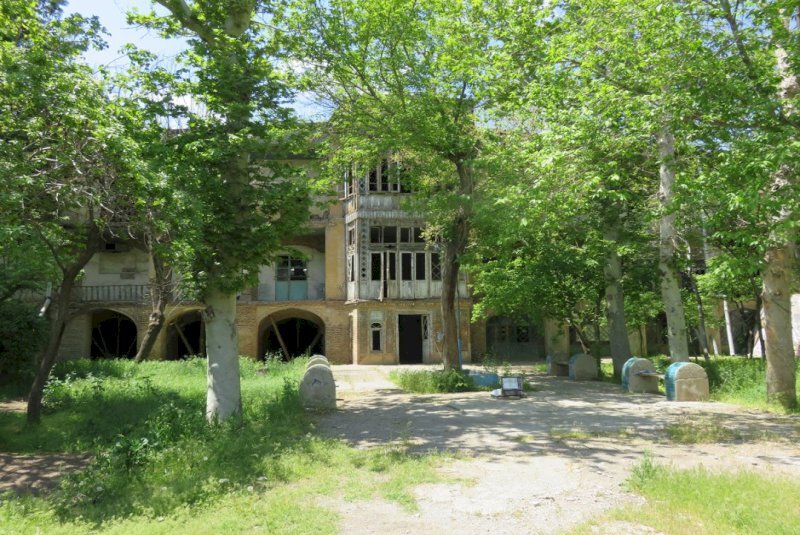Qazvin Grand Hotel to be ceded to private sector

TEHRAN – The historical Qazvin Grand Hotel, which was established in 1922 in the west-central Iranian city, will be temporarily ceded to the private sector to receive further care and maintenance.
The Qajar-era (1789-1925) monument will be handed over to private investors through tender process, CHTN reported on Wednesday.
The structure has undergone several restoration projects so far and is ready to be used as an accommodation and cultural center, the report added.
Known as Iran’s first “European-style” hotel, the monument is located in the historical texture of Qazvin (152 kilometers northeast of Tehran).
It is one of the oldest hotels in the country, covering about 3,000 square meters. The three-story building enjoys unique architectural features, such as Corinthian order column capitals, wooden ceiling, elegant stuccos, and brickwork.
Inscribed on the National Heritage List in 2004, the hotel is the site of a historically significant event: It was in this hotel that Reza Shah, the founder of the Pahlavi dynasty, plotted the coup d’etat that ended the Qajar rule in Iran in the early 20th century.
Qazvin was once the capital of the Persian Empire under Safavids from 1548-98. It is a major tourist destination with a wonderfully restored caravanserai-turned-arts precinct, some quirky museums, and a handful of decent eating options. For most travelers, Qazvin is also primarily the staging point for excursions to the famous Castles of the Assassins and trekking in the sensational Alamut Valley.
Over the past couple of years, tens of historical places and monuments have been temporarily ceded to the private sector under the supervision of the Revitalization and Utilization Fund for Historical Places.
Affiliated with the tourism ministry, the Fund is in charge of concession with the aim of historical sites receiving better maintenance by repurposing them into thriving boutique hotels, eco-lodges, traditional restaurants, or other profitable niches.
The country boasts hundreds of historical sites such as bazaars, museums, mosques, bridges, bathhouses, madrasas, mausoleums, churches, towers, and mansions, of which 26 are inscribed on the UNESCO World Heritage list.
ABU/
Leave a Comment